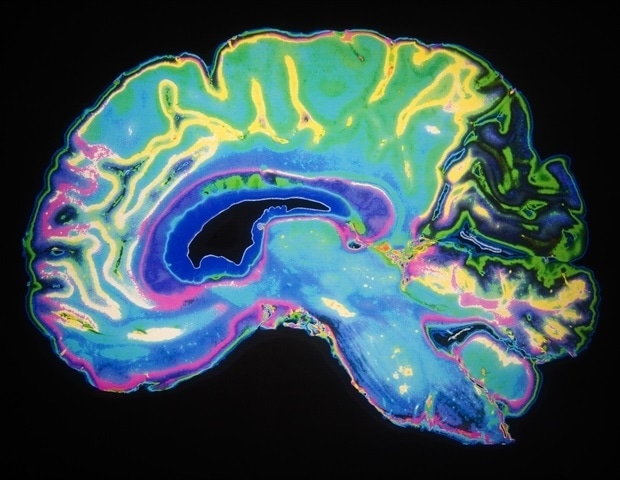
An EEG (electroencephalogram) can provide a valuable biomarker for detecting delirium, a serious mental disturbance that is often underrecognized, as well as predicting poor clinical outcomes, researchers from Massachusetts General Hospital (MGH) have found. In a paper published in Neurology, the team reported that the generalized slowing of brain rhythms, shown as abnormal theta or delta waveforms on a routine clinical EEG, were associated with longer patient hospitalizations, worse functional outcomes and increased mortality.
There is growing concern that delirium severity is associated with worse prognosis, and our study provides for the first time hard clinical data that allows physicians to quantify, track and predict patient outcomes in a more accurate way. This information could play a critical role in identifying high-risk individuals and then monitoring the clinical course of their condition, including potentially their responses to novel therapies."
Eyal Kimchi, MD, PhD, investigator in the department of Neurology at MGH and lead author of the study
Delirium is an acute and fluctuating disturbance of attention and awareness that is often associated with dementia, dependence and death. While clinical tools in the form of structured cognitive assessments with standardized questions are commonly used to measure delirium presence, they involve subjective evaluation of a complex neurologic condition, generating disagreement even among experts in the field. Generalized EEG slowing was shown in the MGH study to be highly and significantly predictive of delirium when compared to the results of the 3-Minute Diagnostic Interview for Confusion Assessment Method (3D-CAM), the study's primary assessment tool.
"There's been an explosion of clinical tools to assess delirium, but very little in the way of biomarker development," says Kimchi. "Having a biomarker which is more rigorous and quantitative would give us a better understanding of what's going on in the brain and provide a solid foundation for our diagnoses and prognoses. It would also allow us to develop therapies and determine if they are working."
The study consisted of 200 inpatients undergoing EEG for various causes of altered mental status. Over 60 percent of this cohort screened positive for delirium based on the 3D-CAM criteria. While previous research has linked EEG slowing to poor clinical outcomes among specific patient populations, such as those with postanoxic coma or sepsis in the ICU, the MGH study was the first to draw a connection to a wider patient population with a variety of disease states.
In terms of predicting clinical outcomes among these patients, investigators found that EEG slowing was associated with a median length of hospital stay eight days longer than for those with no slowing. Moreover, EEG slowing was a marker for worse functional outcomes as measured by ability to perform routine daily tasks required for independent living. And lastly, EEG slowing was associated with increased in-hospital mortality. Specifically, the study found 19 of the 127 patients with delirium and EEG slowing died in the hospital, compared to no deaths among the cohort without EEG slowing.
"Our study suggests that even a single observation of EEG slowing is a significant marker for poor clinical outcomes among people with altered mental status and shouldn't be ignored by neurologists and other medical professionals," says Kimchi, who is also an assistant professor of Neurology at Harvard Medical School (HMS). "These are vulnerable individuals and being able to identify and monitor them through EEG slowing is a valuable way to ensure they get the care and treatment they need."
Massachusetts General Hospital
Journal reference:
Kimchi, E.Y. et al. (2019) Clinical EEG slowing correlates with delirium severity and predicts poor clinical outcomes. Neurology. doi.org/10.1212/WNL.0000000000008164.






No comments
Post a Comment